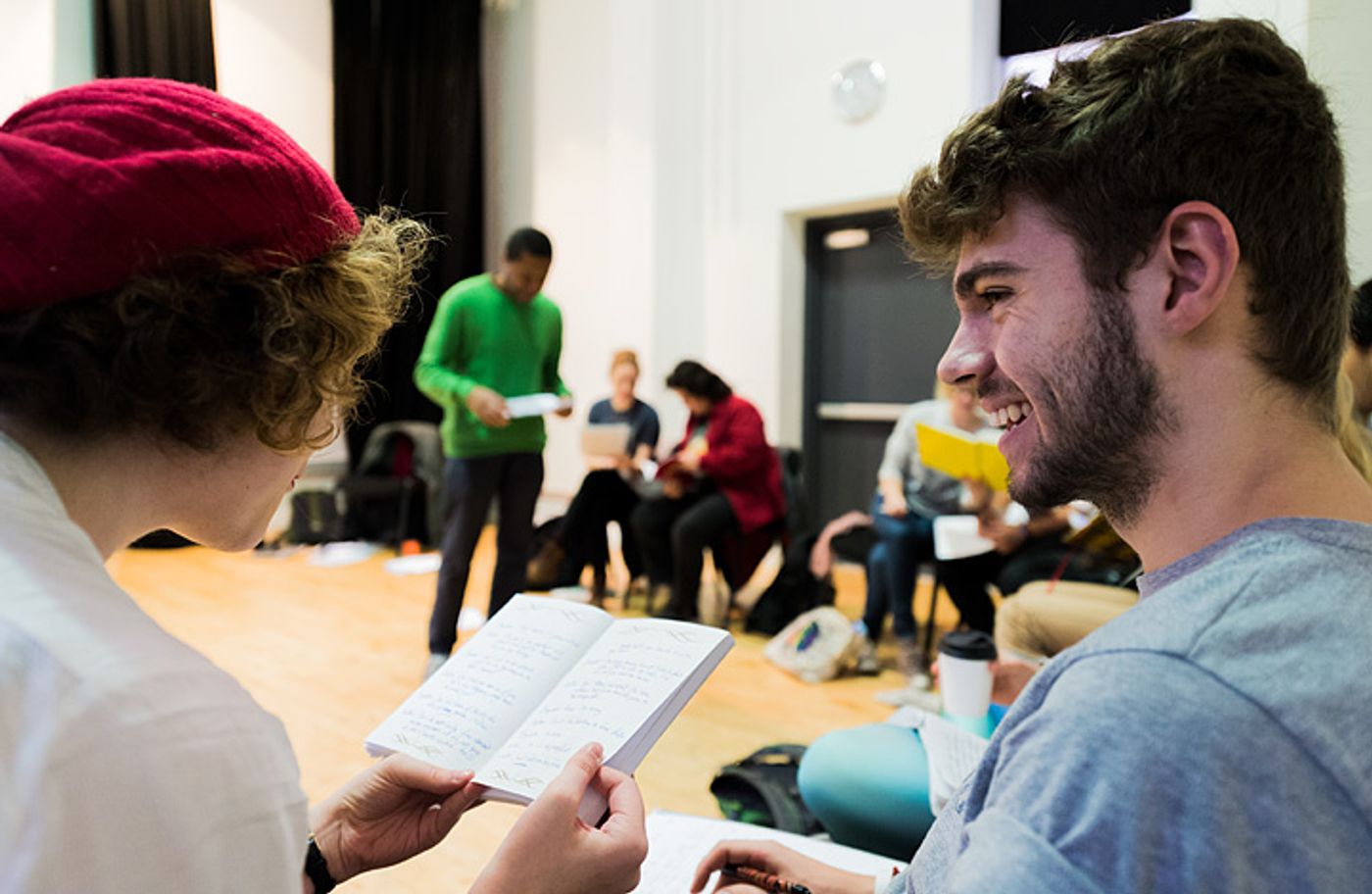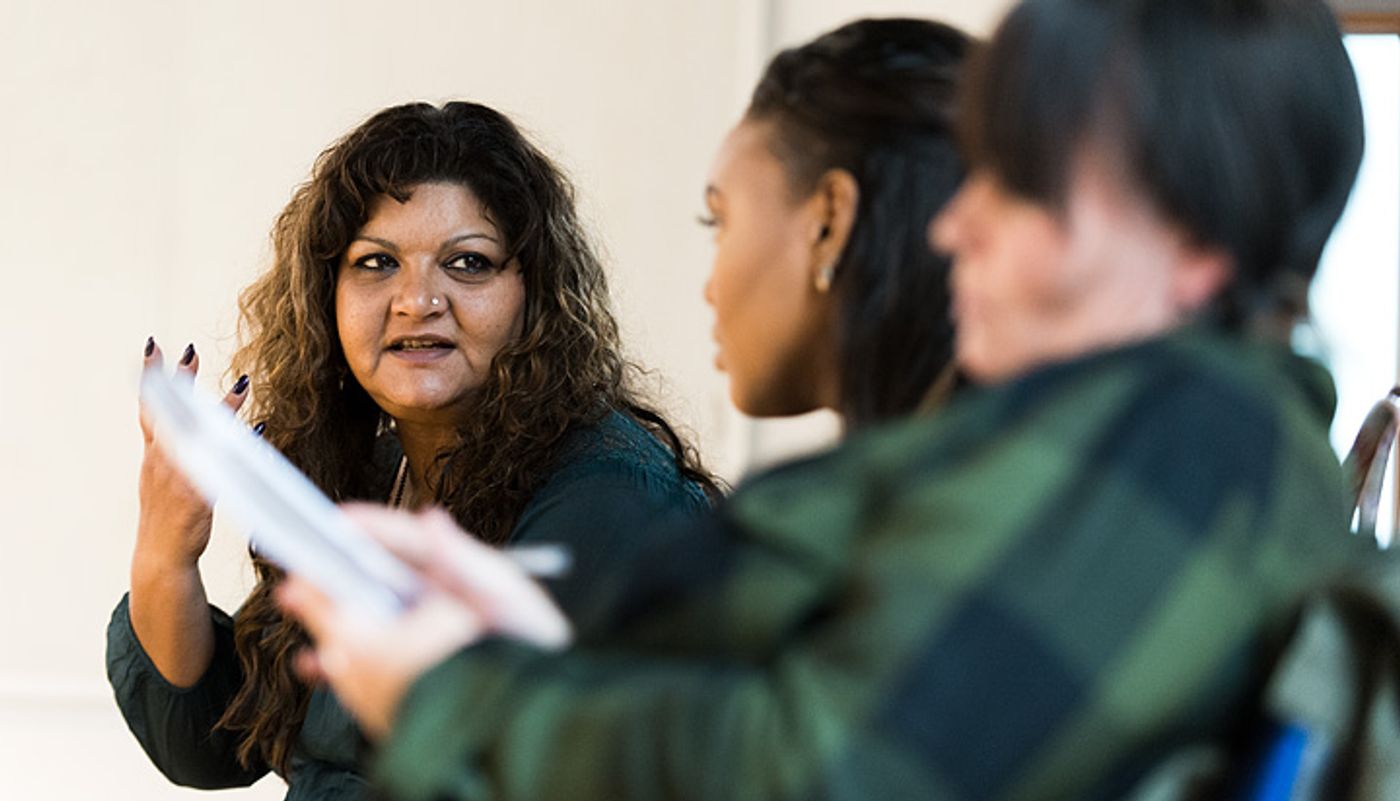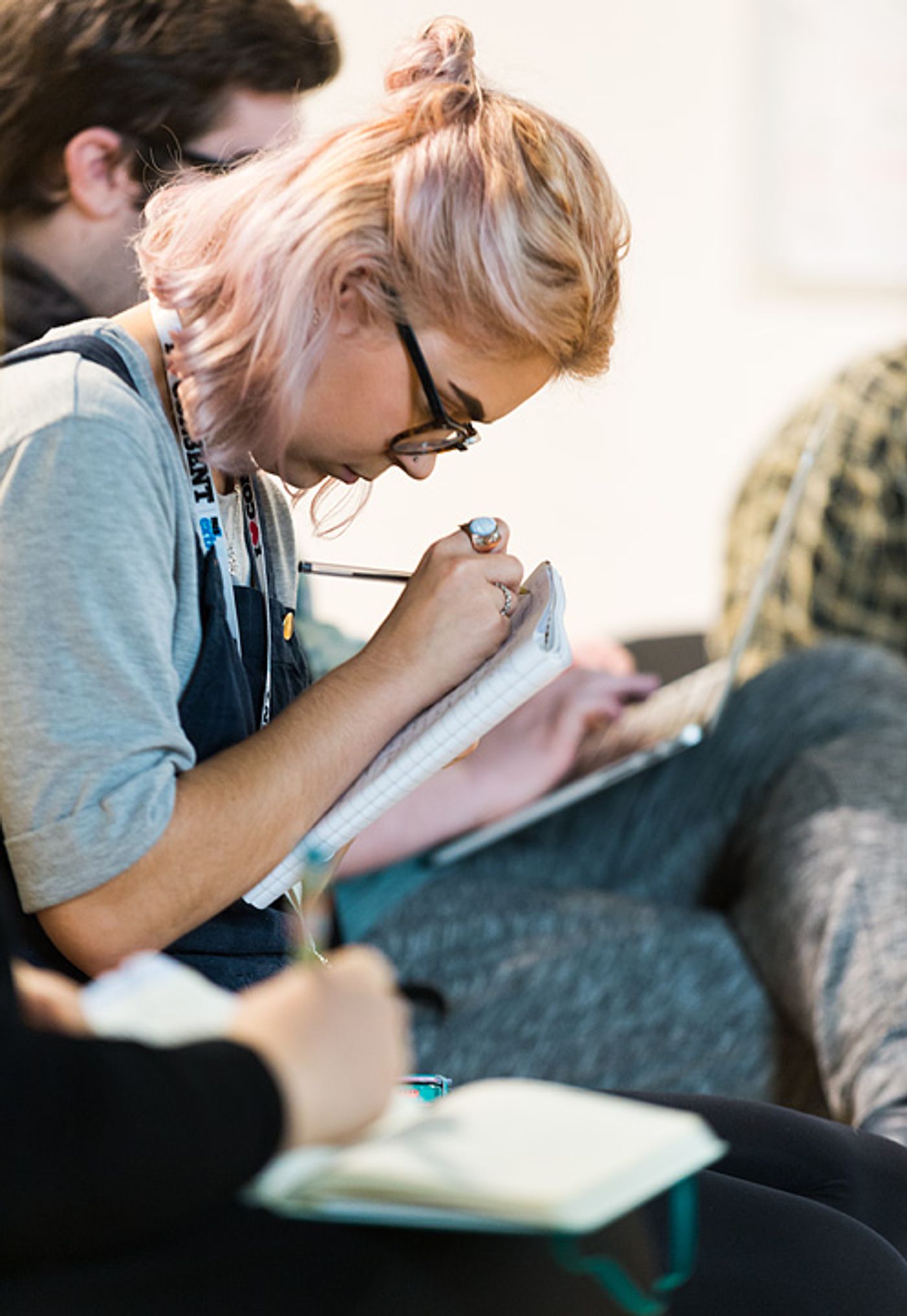BWW Blog: Royal Central School of Speech and Drama's Farokh Soltani on Discovering Your Unique Writer's Voice
 Dr Farokh Soltani is a writer, researcher, sound-maker, and teacher. His career began in his native Iran, where he worked as a writer and sound designer. His output included everything from sitcom scripts for national television networks, to award-winning short films such as The Project and Mr M at the Centre of the World, to music for theatre, film, and a particularly annoying mobile phone tariff ad.
Dr Farokh Soltani is a writer, researcher, sound-maker, and teacher. His career began in his native Iran, where he worked as a writer and sound designer. His output included everything from sitcom scripts for national television networks, to award-winning short films such as The Project and Mr M at the Centre of the World, to music for theatre, film, and a particularly annoying mobile phone tariff ad.
He then moved to the UK and earned a PhD through his research into methods of writing and producing radio drama at The Royal Central School of Speech and Drama, where he now teaches on its Writing for Stage and Broadcast Media MA/MFA and its undergraduate Writing for Performance course, working with over fifty new writers every year.
On Central's Writing for Performance and its Writing for Stage and Broadcast Media courses, students receive a vocational training in writing drama across a range of different media contexts and develop the core competencies and skills of the dramatist to explore their inner 'voice' and develop their confidence as professional scriptwriters. Students work with a variety of high profile writers, arts practitioners and directors, encountering a diverse range of innovative performance practices that use writing for performance in different ways.
In this article, Farokh shares his top five tips for discovering your own, unique writer's voice.
A writer is often defined by a voice - a certain set of styles, subjects, and attitudes that makes their work unique and their own; as a playwriting tutor, my job is to help them find it. Based on my years of experience working with new writers, I have found the following to be most helpful in finding your voice:
5. Know yourself: If you don't know what you sound like, how can you find your voice? I always advise students to sit down once in a while and write a list of their likes and dislikes; you may be surprised by what you discover! Are you more of a realist, or do you like creating fantastical worlds? Are your favourite characters capable and powerful people facing extraordinary foes, or bumbling misfits trying to navigate simple everyday problems? Do you like fast, staccato dialogue, or dreamlike monologues about long-gone events? While we all have and know our preferences implicitly, sometimes the only way to know our own tastes is to make them explicit to ourselves. The first step to writing is to know what you want to write!
4. Trust yourself: Writing is difficult. Not because it's tough to come up with clever ideas, or because there's some divine spirit of genius that only inspires a select few - everyone has a unique mind and unique ideas! But out of the infinite possibilities of imagination, only a few can be committed to paper. The process of writing consists of nothing but making choices, thus leaving the writer with the heavy burden of deciding what is kept or discarded. Many young writers struggle with this weight, and the biggest mistake they make is not to choose. Rather than believing in their own decisions, they wait for some help, some guidance, a stroke of genius, to solve the dilemma - and that stops them from taking that essential first step. If you want to grow as a writer, you will have to accept that the choice is yours. So, trust yourself with carrying the burden of creativity!
3. Be critical of yourself: Contrarily, for every writer who does not trust themselves, I've also seen the opposite: those who put their absolute trust into the wrong choices. The most difficult lesson that any young writer learns is that writing often fails - usually because we assume that readers receive it as we intended; instead, it is always the reader who controls the meaning of our work, and not us. So, to find your own voice, you need to think deeply about whether your creative choices are correct. Will that wailing soliloquy really express your character's grief to the audience as you think, or will they just find it melodramatic, or worse, cringeworthy? Will your audience adore the loveable rogue character as much as you, or have you perhaps missed how creepy he sounds? The more you question your decisions, the more certain you can be that they represent your voice.
 2. Read as much as possible: Samuel Johnson said that a writer should "turn half a library to write one book" - and he should have included the rest of the library too! Every playwright, from Sophocles to my current freshman students, is working in a tradition with centuries of history consisting of writers who took inspiration from other writers; it would be impossible to find where you fit in this tradition without first mastering it. Any encounter with another writer's work is a chance to find creative allies, aesthetic enemies, new techniques for your writer's toolbox, or your next inspiration. Reading bad plays is equally useful, as it often spurs you toward clearer decisions; pieces that makes you shout "I'll never write like this" are often stepping stones to knowing exactly how you write!
2. Read as much as possible: Samuel Johnson said that a writer should "turn half a library to write one book" - and he should have included the rest of the library too! Every playwright, from Sophocles to my current freshman students, is working in a tradition with centuries of history consisting of writers who took inspiration from other writers; it would be impossible to find where you fit in this tradition without first mastering it. Any encounter with another writer's work is a chance to find creative allies, aesthetic enemies, new techniques for your writer's toolbox, or your next inspiration. Reading bad plays is equally useful, as it often spurs you toward clearer decisions; pieces that makes you shout "I'll never write like this" are often stepping stones to knowing exactly how you write!
1. Write as much as possible: Write. Sit down and write. Don't think, just write. Write, write, write. Once more for emphasis: write. You will never know what you want to write before you start writing. You might think that the writing process happens in two steps, with the intellectual labour of creative thinking coming first, followed by the mechanical act of inscribing them. The two, however, are never separate; we think as we write and write as we think. You may have a faultless story, scene, or text in your head, but as soon as you sit down ready to go, the act of writing itself will disrupt your plans. Each idea, perfectly formed and complete in the mind, suddenly becomes impossible and unruly as it meets the concrete reality of words on paper. The only way to get it right is to practice. To know what your voice is, you need to hear it over and over again. So, one last time: write!
The Royal Central School of Speech and Drama is a leading UK drama school located in London - a highly regarded, specialist conservatoire and a constituent college of the prestigious University of London. Central provides specialist training in the dramatic and performing arts, offering Bachelor's and Master's degrees as well as short courses and PhD opportunities. Students from across the world study on Central courses, bringing a rich diversity of skills and experience to create a unique community and training environment.
All of Central's courses take place on the school's Swiss Cottage campus in Hampstead, a quiet, leafy corner of London which is only 10 minutes by tube from the bright lights of central London's West End theatre district. Central's campus houses the 234 seat Embassy Theatre, numerous workshops, rehearsal, movement and performance studios and the new £16.7 million state of the art North Block building comprising a studio dedicated to film, media and digital work and a galleried, courtyard theatre.
Central holds auditions and interviews for its courses across the globe, including San Francisco (4 and 5 February 2020) and New York City (8 and 9 February 2020). To find out more and to register your interest in being considered for a course, please visit the Central website here.
Videos


